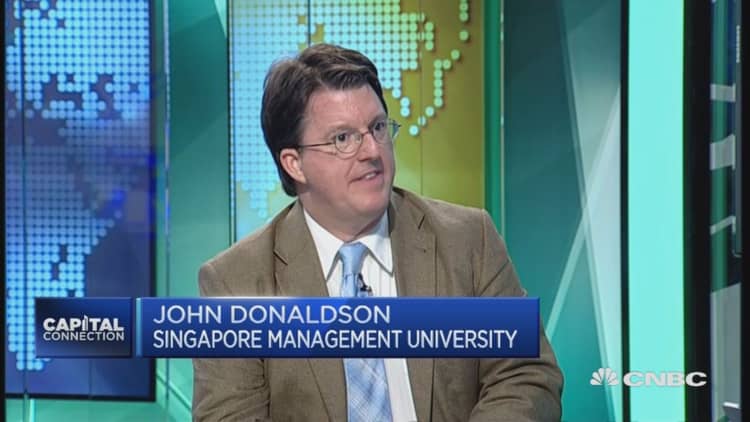
Amid China's rise to global superpower status, many of its citizens have been lifted out of poverty.
Yet, significant numbers remain impoverished and key challenges lie ahead for the Chinese government's goal of fighting poverty, according to John Donaldson, associate professor of Political Science at Singapore Management University.
Speaking with CNBC's "Capital Connection" on Monday, Donaldson said solving the problem of Chinese poverty is likely to be high on the agenda for the current administration in Beijing.
"It may not look like a lot, percentage-wise. But, because of the size of China, it's still an awful lot of people. And so, we're talking about tens of millions, or even, you know, the high tens of millions, depending on the way that you measure poverty, that are still remaining to be removed," Donaldson said.
"And those, in many ways, are even more difficult to remove than the folks that have already been lifted out of poverty," he added.
While industrialization has played a significant role in lifting many Chinese citizens out of poverty, Donaldson said the importance of rural development should not be overlooked. Citing former Chinese president Hu Jintao's introduction of healthcare and education to rural areas, Donaldson said such initiatives give citizens the option of remaining in rural areas — rather than shifting to megalopolises in search of a better life.
At the same time, those measures alleviate the problem of overcrowding in urban areas.
Although he recognized that urbanization is a often tied to populations becoming wealthier, Donaldson said that it "should happen a lot more organically than people are planning."
"I think it's not urbanization for its own sake," he stressed, warning that such inorganic shifts to big cities could wind up fueling "a hidden time bomb" in the Chinese economy.
Donaldson's comments come against the backdrop of rising concerns across the globe about China's economic stability.
On Beijing's recent push to bring the Chinese economy up the industrial food chain, Donaldson said Xi and his administration have to exercise caution. They should ensure, he said, that those who are poor and less-educated have access to education to fill the job vacancies created as a result of next-level industrialization.
Expressing surprise at Beijing's recent announcement of the establishment of a new special economic zone in Hebei province's Xiongan, Donaldson said this was likely part of a strategy to draw investment further inland and to spread wealth beyond the coastal regions of China.
Many challenges stand in the way of the project's success, Donaldson said, but he added that Beijing's targeting of a region deemed "China's Rustbelt" could be a sign that the government is serious about poverty eradication.

